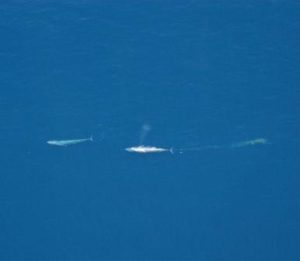
Far from being a threat to fisheries, new research from Flinders University suggests whales may in fact play a key role in sustaining fish stocks by fertilizing ocean feeding grounds with whale poo.
The research paper, titled Whales sustain fisheries: Blue whales stimulate primary production in the Southern Ocean, indicated the animals’ nutrient-rich defecations sustained fish stocks and promoted marine productivity in whale feeding grounds.
It found that while whales do consume huge quantities of prey, they also passed a large proportion of the nutrients they consumed back into ocean surface waters, providing food for other prey fish.
Dr Trish Lavery, a Flinders University PhD graduate, said that whether whales compete with fisheries for marine resources has been hotly debated.
“Previous models have assumed that all prey eaten by whales is lost to marine ecosystems, and thus harvesting whales would allow the prey that would have been consumed by that whale to become available for harvest by fisheries,” Dr Lavery said.
“We modelled the effect of blue whales on marine productivity by examining both the amount of prey consumed and the amount of prey stimulated as a result of the whales defecating large amounts of nutrient-rich faeces in the surface waters of the ocean.
“We found that blue whales essentially fertilize their own feeding grounds with the nutrients needed to sustain the growth of their krill prey.”
The researchers also said that global declines in marine production occurred at the same time as whale stocks were being reduced during the Industrial whaling era, although it was not known if these declines were caused by the removal of whales.
Ms Lavery said her research suggested that maintaining or increasing whale numbers could form part of a long-term strategy for the replenishment of surface fisheries.
The new paper comes from the same research team that showed how nutrient-rich defecations of deep diving whales helped to remove carbon from the atmosphere and combat climate change.

